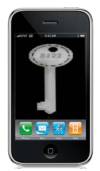 After many months of tinkering, Dev-Team, a cadre of self-described hackers who are not affiliated with Apple, announced on its blog that it had successfully unlocked the iPhone 3G. The group says it’s done so via a firmware modification — formerly codenamed “yellowsn0w”–that unlocks the iPhone 3G from AT&T, thereby allowing it to be used on any network. The target release date for the modification is New Year’s Eve 2008; Apple will presumably drop the ball on the group’s efforts by releasing an update that reverses the modification –or worse.
After many months of tinkering, Dev-Team, a cadre of self-described hackers who are not affiliated with Apple, announced on its blog that it had successfully unlocked the iPhone 3G. The group says it’s done so via a firmware modification — formerly codenamed “yellowsn0w”–that unlocks the iPhone 3G from AT&T, thereby allowing it to be used on any network. The target release date for the modification is New Year’s Eve 2008; Apple will presumably drop the ball on the group’s efforts by releasing an update that reverses the modification –or worse.
The hack requires iPhone that have a baseband (modem firmware) of 2.11.07 or earlier. yellowsn0w will be packaged into an end user-friendly application similar to the group’s existing applications, PwnageTool and QuickPwn, according to the blog.
While it provided no evidence that it had indeed unlocked the iPhone, Dev-Team has promised to post a video to the Web demonstrating its exploit in the near future.
Musician Frank Zappa, wrote the lyric “don’t you eat that yellow snow,” and Apple is likely to channel Zappa in its response. If its past behavior is any indication, the company could even retaliate against unlockers by causing modified devices to become inoperable after they are upgraded with Apple supplied iPhone software.
To keep things in perspective, there will only be a small subset of customers unlocking their phones. It is more likely that there is a provision in Apple’s contract with AT&T that it must make a good faith effort to keep iPhones locked to its network. Either that, or Steve Jobs simply does not want anyone messing with his stuff.

 The browser was are heating up– again. Google vice president Marissa Mayer said that company’s
The browser was are heating up– again. Google vice president Marissa Mayer said that company’s  The
The  YouTube intends to restrict access to content that might be deemed pornographic or profane in a play to broaden its appeal and attract more of the highbrow audience that enjoys watching
YouTube intends to restrict access to content that might be deemed pornographic or profane in a play to broaden its appeal and attract more of the highbrow audience that enjoys watching  If Microsoft wants to become a serious Web competitor to Google it should stop tripping over its own feet. On
If Microsoft wants to become a serious Web competitor to Google it should stop tripping over its own feet. On 
 In normal times, big discounts on Apple products aren’t exactly commonplace. But there’s a plethora of rumors today about markdowns on Apple gear this holiday shopping season, as evidenced by big box stores like
In normal times, big discounts on Apple products aren’t exactly commonplace. But there’s a plethora of rumors today about markdowns on Apple gear this holiday shopping season, as evidenced by big box stores like